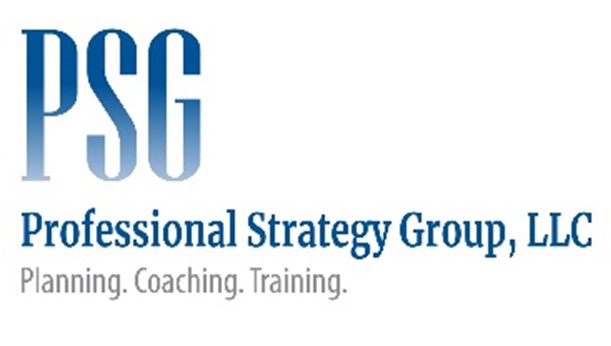We frequently say that giving the utmost client service is the best new business strategy because you may not only retain that client but also expand their business with your firm. Most CPA firms would agree with that statement. Yet, many of those same firms may not be honest with themselves about whether or not they are delivering the highest level of customer service and instead do just the bare minimum of customer service. Where does this come from and why?
First, let’s face it: It’s harder for a CPA firm to be fired than in many other industries. Your firm might respond to client requests, make sure certain filings are done by a particular date and do other tasks that technically “check a box.”
However, there’s an issue with that approach: It speaks to retention, but it doesn’t speak to full-on client advocacy on your firm’s behalf. They can say you’re “fine” or “good,” but they can’t say much more than that because, well, you’ve provided just enough and what they asked for. But the bare minimum amount isn’t the same as above-and-beyond service delivery. How do you expect to get a truckload of referrals from that?
For those CPA firms that want to do more than the minimum required, an opportunity in the form of a new business strategy may exist in transforming customers into customer advocates for your firm. Here’s how.
Ambassadors Don’t Advocate For Commodity Service
“Value added” is such an overused term by now, but that’s really what we’re talking about to define superior service. Doing an audit is a commodity. Filing a tax return is a commodity. We expect your CPA firm to provide these services and at a high level of competency. What do we not expect from your firm?
To deliver more of the unexpected, you need to create insights and ideas from the business objectives your clients have shared with you. Let’s say one of those clients would like to expand their business. How can you help them take advantage of that? Well, you might see an opportunity to put a bigger warehouse in Nevada versus California and a benefit since there is no income tax in Nevada. So if they sell their office in California, they still may pay tax on that, but perhaps there may be some state or local grants you could help them take advantage of.
Where do these opportunity zones lie with each client so you can create value over and above from it? It can start with as standard a task as doing a tax return for the business, in the process of which you get to know the business. You have to be willing to spend time to get educated about their company, their industry, who their competitors are, etc. From there, you can connect the dots with certain services within the firm they may not be utilizing at present.
Opportunity Zone examples include:
- Responding to IRS inquiries and audits
- Structuring an acquisition
- Awareness of changing laws
- Uncovering R&D tax credits
- Monitoring court cases that influence filing positions
- Maximizing tax potential
- Minimizing liabilities
These issues don’t get raised if you are complacent and all you’re doing is sending them out a planning letter periodically. Getting their tax returns done well and on time isn’t enough.
All it takes is a competitor to say, “Hey, gave you ever thought about…” to your CFO. The CFO might then say, “No, I didn’t know anything about that.” The competitor then replies: “Oh. Haven’t you heard about it? You mean, your current firm hasn’t talked to you about that?”
Now the seeds of doubt have been sowed. The client calls you up and says, “Why haven’t you ever talked to us about this?” If they do ultimately leave, it’s not because your firm didn’t do what they asked. It’s because you never gave them any new ideas or strategies beyond that, unprompted.
These are the things that can change the perception of a firm. Your reputation becomes one of being on top of everything and approaching clients with the kind of things they never thought of. Will that client likely stay with you? Yes. But now, they might be intrigued to engage with you on more services or at least more open to the idea. And that’s not all.
PSG’s Jim Brasher explains the direct link between customer service and growth and why it could pay dividends long-term in the form of a competitive advantage.
From Customers To Advocates
When you move up the scale from being a service provider to a valued advisor, you’ll know because the client will ask your opinion on the kind of things you don’t even necessarily touch. “What do you think about this?” will be asked more frequently, regardless of whether “this” is in your wheelhouse or not. Now they view you in a different light. They don’t view you as merely a “tax person” or “audit person.” They see you as a total business advisor – a valued advisor, in fact.
What’s the next immediate step you can take in your new business strategy? Start by having the mindset that you will take care of your people the same way you take care of your clients: With great respect and care because your team members can also be your advocates.
What’s so hard about that, you ask? The hard part is this level of care isn’t a “sometimes” occurrence. It’s an everyday commitment. It’s your ethos. It’s in your DNA. And everyone on the team needs to know what to do to ensure clients and team members have the best experience possible.
To put you on your way to being seen as a trusted advisor and creating more customer advocates, there’s no better investment to make in your team than PSG’s Creating Advocates Through Your People 1-day course. With interactive sessions, role-playing, exercises and more, we’ll show your team members how to position the firm as one that co-workers and clients want to become advocates for. What difference could just a single day make for your firm’s new business strategy? You owe it to yourself to find out by calling us at 312.860.0873.



